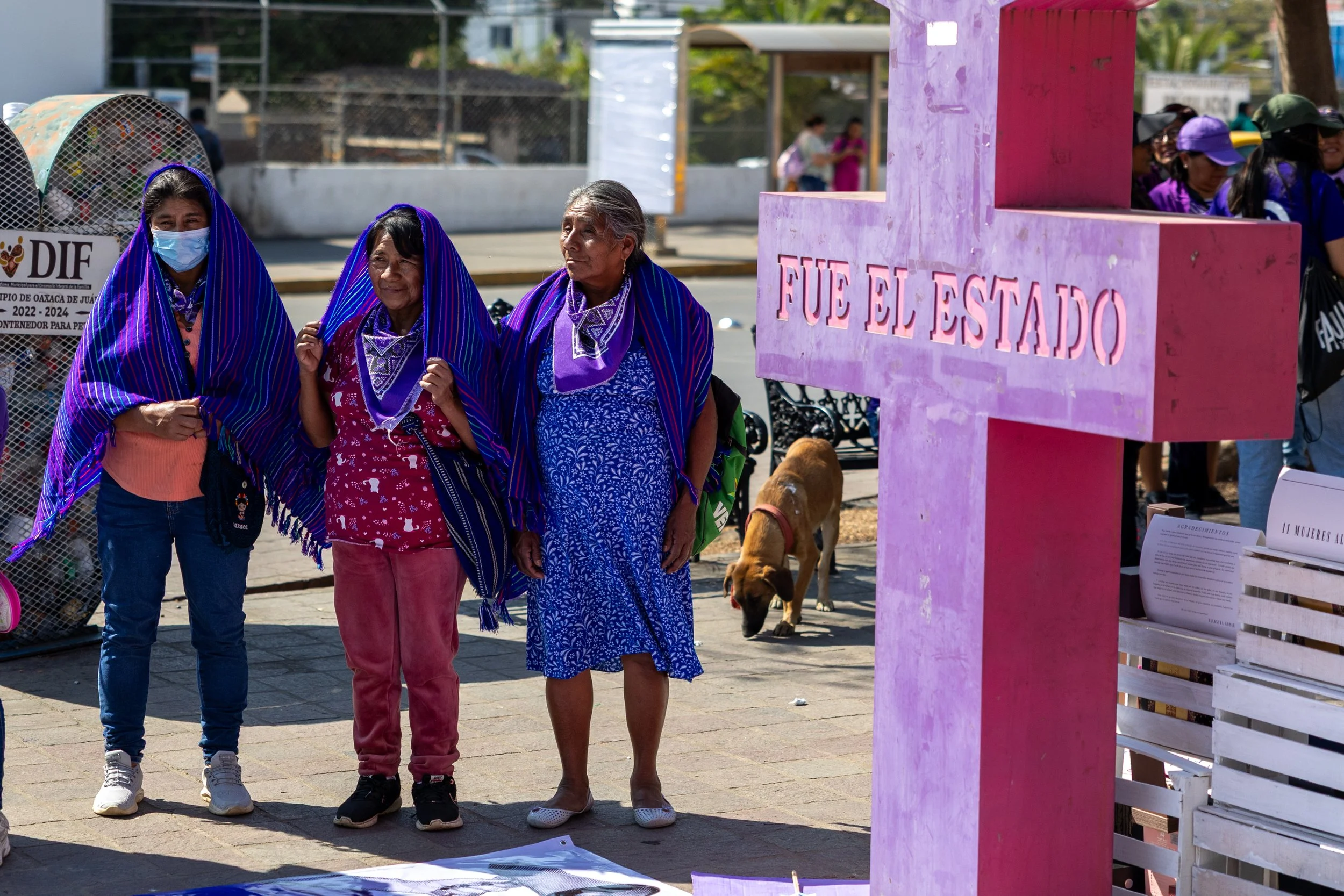Sandra Domínguez Exposed Misogyny—Then Disappeared. Her Death Fuels Accusations of State Complicity in Mexico
OAXACA, Mexico — The remains of 38-year-old Sandra Domínguez Martínez, a prominent Indigenous women’s rights activist who vanished alongside her husband, Alexander Hernández, in early October 2024, have been found in Veracruz, authorities confirmed this week. Her body was identified on April 28, concluding a six-month search. One individual has been charged, though the investigation remains ongoing.
Rights groups say her case illustrates the dangerous intersections of digital misogyny, state corruption, and systemic failures to protect women in Mexico.
An Ayuuk (Mixe) human rights lawyer from Oaxaca, Domínguez first gained national attention in 2020 after exposing “Sierra XXX,” a misogynistic WhatsApp group where state officials and politicians—including Morena candidate Humberto Santos—shared degrading comments and non-consensual, sexually explicit images of Indigenous women. Her revelations sparked public outrage, led to temporary suspensions, and forced Santos to abandon his bid for the local Chamber of Deputies. No prosecutions followed. At the same time, her public denouncement made her a target.
Women march in downtown Oaxaca on March 8, International Women’s Day, demanding justice for the disappearance of Sandra Domínguez and other missing women human rights defenders.
In 2022, Domínguez uncovered a similar group, “Mega Peda,” organized by deputies and high-ranking officials within the administration of Oaxaca governor Salomón Jara. Among those implicated was Donato Vargas, head of the Oaxaca Coordination of Peace Delegates and a Morena official, who had also been named in the 2020 scandal.
“Donato, once again it’s you who is involved in a men’s chat, among officials, where women are exposed in sexual situations.” said Domínguez addressing Vargas.
Dominguez had received an apology from Donato himself, where he admitted the existence of the WhatsApp group “Sierra XXX” and gave the names of fellow officials. Later, Dominguez accused the government of ignoring women’s voices by allowing Vargas to remain in his post.
Domínguez’s activism continued in 2023 when she supported Aracely Cruz Jiménez’s domestic violence complaint against Vargas. Soon after, Domínguez reported receiving death threats, prompting her to withdraw from public life and reduce her social media presence. Her family and allies repeatedly urged investigators to prioritize her exposure of misogynistic chat groups as a key motive. Instead, Governor Jara’s administration defended Vargas.
Days after Domínguez vanished, Jesús Romero López, Jara’s deputy, publicly absolved Vargas of involvement—only to retract the statement under public pressure.
Civil society groups and feminist collectives condemned the response as emblematic of a “patriarchal pact” enabling impunity for gender-based violence. The Oaxaca Prosecutor’s Office has dismissed the chat group angle, instead blaming criminal cells in Veracruz—a narrative some critics argue might obscure the case’s political and gendered dimensions.
In a statement, one of Domínguez’s legal collaborators accused the state of shaping the investigation to protect officials and preserve the government’s image.
“The authorities are overlooking and protecting those Sandra had denounced—despite evidence and allegations of criminal and human rights violations involving public officials,” he said. He warned that by advancing theories without substantiating evidence, prosecutors were “getting ahead of the facts.”
At a press conference in Oaxaca, Domínguez’s sister, Kisha Domínguez Martínez, appeared alongside civil society allies to demand justice.
“Sandra’s case is a painful and powerful reflection of the reality we face in this country: without pressure from society, there is no real commitment from the state. Searches do not progress on their own; institutional omission also kills. Indifference is another form of violence,” she said.
Her statement highlights the peril faced by women activists in Oaxaca, where 218 femicides have been recorded under Jara’s government since 2022.
In Mexico, 90% of crimes go unreported, a third of reported cases are never investigated, and just 1% result in resolution, according to Human Rights Watch. Other studies place impunity rates as high as 95%. The country ranks among the deadliest globally for women human rights defenders, with Oaxaca standing out as particularly precarious. “Prevention measures and protection for victims are either not provided or not effective,” UN experts have warned.
“The state is often the first perpetrator,” said an activist involved in Domínguez’s case who decided to remain anonymous in fear of retaliation, noting that women comprise a disproportionate number of Mexico’s disappeared activists.
Women march in downtown Oaxaca on March 8, International Women’s Day, demanding justice for the disappearance of Sandra Domínguez and other missing women human rights defenders.
Domínguez’s death has reignited national outrage over Mexico’s failure to deliver on promises of justice, in a country where more than 120,000 people remain disappeared. Protests in Oaxaca and Mexico City are calling on President Sheinbaum to move beyond rhetoric and deliver real change. Grassroots coalitions are demanding urgent reforms, transparent investigations, stronger protections for activists, and reparative justice.
“Today, with Sandra at home, we raise our voices louder than ever: We demand a true commitment! Not just laws written on paper, but forceful and effective actions, with a gender perspective and a focus on human rights,” said Kisha Domínguez Martínez.



